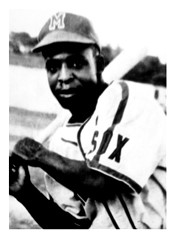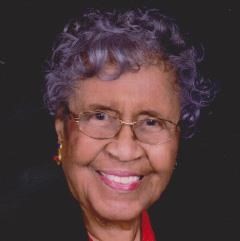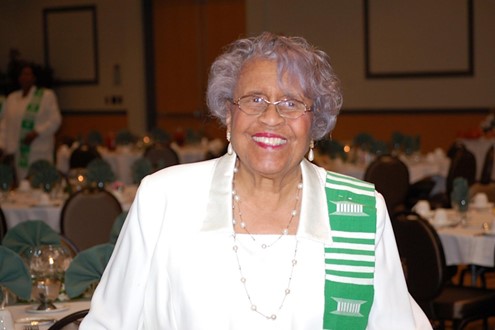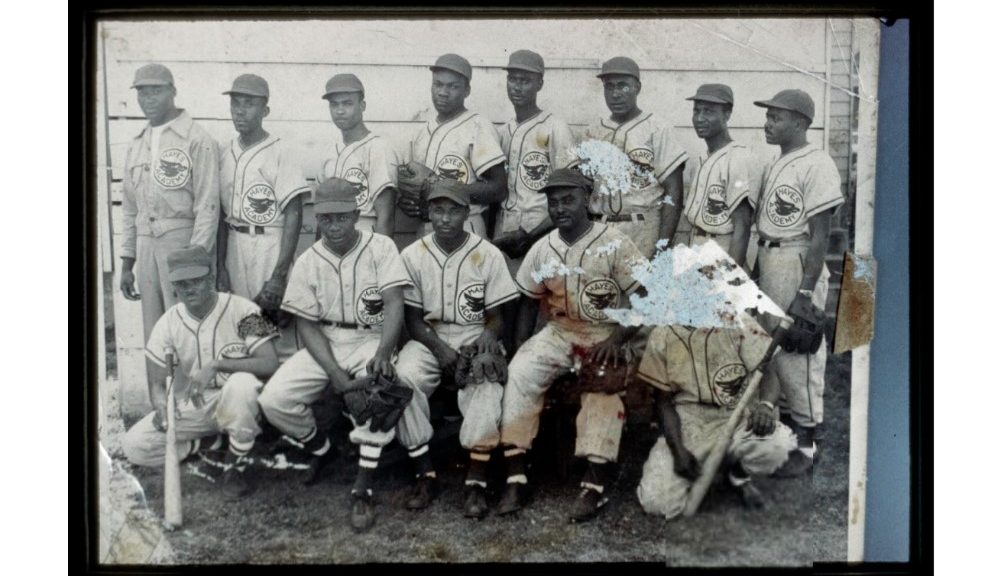Post contributed by Mattison Bond, Project Research and Outreach Associate
We at the John Hope Franklin Research Center are back again with another blog post to highlight some of the unique oral histories that can be found in the Behind the Veil Digital Collection. Last week’s post featured interviews from folks from Mississippi, New Jersey, North Carolina, and South Carolina. This week, we take a deeper look into the collection by focusing on the interesting items that can be found from Tennessee and Virginia.
You can view Part 4 of this series here: Digging through the Tapes: Exploring the Behind the Veil Collection Pt 4 – The Devil’s Tale (duke.edu)
Enjoy exploring!!
Tennessee
While the Tennessee location filter contains over one hundred items, it is also home of a very unique occupation within the collection. There are three baseball players mentioned in the collection and pictures of baseball teams from different universities. Two of the oral histories were recorded in Tennessee and the other was in Rocky Mount, North Carolina. Today we will focus on the oral history of Joseph Burt Scott, World War II veteran, left hander, and major league baseball player.
Scott was born and raised in North Memphis to a single mother and four other siblings (one passing in infancy). He attended Corns Avenue School and enjoyed learning and working for what he wanted. He speaks highly of the people in his life throughout the interview. Mentioning the dedication of his mother keeping his siblings within the church, and the refined principle and teachers that molded much of his early life.
At an early age he loved baseball and began playing in Memphis as a child. When moving to Chicago to attend high school, he would continue to play, joining little leagues and amateur leagues within the city. He would join the service in 1942 and play on the service team, being the only black player. Scott seems unphased by this and other instances dealing with race throughout the whole interview. He recalls a time when sitting in a restaurant with his teammates, the waitress and manager refusing to serve him, until his lieutenant threatens to make the whole team leave the restaurant. He does not press the issue, saying that he would “look for further adventures” elsewhere if need be. His upbringing and early experiences instilled in him the ability to effortlessly brush off any of the negative products of Jim Crow and persist with determination.
Part 1 16:39 “And I’ve had a lot of words said that a lot of people wouldn’t like, but in my coming up through Chicago little leagues, my coach would always say, “Let it go in one ear and out the other.” And I did that all the way through my career. I never paid any attention to the bad talk about race. And I enjoyed listening to it because I would be laughing at it. As my coach would say, “Let your bat do the talking and your legs do the running,” and that’s what I did.”

Scott would go on to play for many other major professional teams such as the New York Black Yankees, the Pittsburgh Crawford, and Chicago American Giants, and of course the Memphis Red Soxs. There would be times where Scotts would be paid for playing, and other times he would just play for fun because of his love for the sport. He would also play for the Zulu Giants, a team created by Abe Saperstein, owner of the Harlem Globetrotters.
Separate accommodations were a well-known product of the Jim Crow era as it came to many entertainment and sports teams. Scott speaks about it, but never seems discouraged by the discrimination that he faced. Even when he is asked about race relations while working at Teamsters, a union trucking job he worked after getting injured during his baseball career, Scott says this:
Part 1 37:57 “Oh, what I can say, race is always going to be a problem in the world, in the entire world. It’s a culture of an animal, just like we are animals, just like a cat and a dog. They square with each other. But I don’t have no complex, like a lot of folks do. I don’t envy any race. I don’t. I will only tell you that the way I come up, not to beg and not to borrow. I don’t like that. I like to work for what I want and I like to help people. I’ve always been a type of guy that will give out a lending hand, although I may get burned later on by doing it, which I have over the years, but I don’t look back. I still look ahead”
You can listen to the oral history of Joseph Burt Scott here: Joseph Scott interview recording, 1995 June 14 / Behind the Veil / Duke Digital Repository
Virginia
Virginia has a total of 63 oral histories, with a majority of teacher within this part of the collection, most who have multiple occupations. Evelyn Peevy is in some ways no different.

Dr. Evelyn Sears Peevy, born in 1923 was a guidance counselor, civil rights leader, and writer in Norfolk Virginia. She grew up in a well to do neighborhood as the daughter of a mother and father that owned two businesses. Her home doubled as a place to live and a commissary that her parents ran. She recalls the rest of childhood, being the seventh among fifteen children and the responsibilities that she had
6:59 “: I cooked. I sewed. I remember I had to sew my brothers’—If they lost buttons on their shirt, it was my job to sew them on because I was next to the oldest girl. Since the oldest one was gone, I did a lot of cooking and sewing, plus working in the store. I got my lessons while I was working in the store. I always felt that my mother had a heavy load, and I wanted to do all I could to help her. So, some of my brothers and sisters called me Miss Goody-Two-Shoe.”
She, along with all of her sisters, graduated from the Hampton Institute. She recalls the culture of Hampton women that was taught to her by the dean of women, having “teas on Sunday afternoon,” not smoking or wearing pants and wearing gloves and hats when going to town to shop.
After graduating from the Hampton Institute majoring in English and minoring in social studies, Dr. Peevy married her first husband. The marriage was unsuccessful and after going back to work, she was given the opportunity to study at Virginia State in counseling. Peevy attended a few different universities, deepening her education. But the running away of her two children served as the largest lesson of her life during this time.
13:35 “They were with my sister in Hampton. They said my sister was pregnant, and she was evil to them. So, the two younger children, they were about 10 and 12, got the little money that I was sending them for spending change, got on their bicycles, went to the grocery store in Hampton, bought luncheon meat and bread, and went to the recreation playground and played all day. My sister finally found them, whipped them profusely, and made them sit down and write me and tell me what they had done. I got that letter, and I cried. I said, “Here I am out here in California trying to learn what to do to help other people, and my own children are suffering.” I never left them again. I started taking them with me to all of the regional conferences and all of the national conventions, because I said it wasn’t worth it if I lose my own children.”
The rest of Dr. Peevy’s oral history details her time within the Iota Phi Lamba Sorority, serving as president for a time. When asked about the racism that she experienced in her life, Dr. Peevy admits that for her it was “like living in a colorless world”. But when she was the head of the guidance department during the time of integration, she started to noticed the effects of racism.
16:22“They sent two women over from North Side Junior High School who were counselors there. They didn’t want to come, and they didn’t want to work under a Black. I had a time with them because they were used to sitting in the lounge reading the paper. What I’d do is go through the lounge to go to the bathroom, and they were saying, “Don’t come over here checking on me.” I said, “I don’t have time to check on you. I had to use the restroom.” You see, that was when I began to realize this thing, this racism is here. Here are these ladies going to come to this Black junior high school and sit around, read the paper or sit in the lounge and could care less about counseling our children.”
While she does not talk about it, she was also the first African American to be appointed to the Norfolk Electoral Board and also served s the Chair of the Advisory Board for Tidewater Community College. She also wrote a weekly column for The New Journal and Guide, a weekly newspaper based in Norfolk Virginia.
Dr. Evelyn Sears Peevy passed in 2017 and is remembered for her work within the schools she served, her sorority, and her community.
You can read more about Dr. Peevy from The New Journal & Guide here: Passes At 94: Dr. Evelyn S. Peevy Remembered for Her Lifetime of Service » The New Journal and Guide
And more importantly listen to her oral history here: Evelyn Peevy interview recording, 1995 August 10 / Behind the Veil / Duke Digital Repository

We have come to the end of part of the series that highlights interesting oral histories that can be found under the many location filters that are listed within the collection. But no fear!! We will be back with more interesting oral histories!
If you have been enjoying the series let us know in the comment section below. We would love to hear from you!



Thank you for sharing this insightful blog! The information is beneficial and inspiring. It’s great to see such detailed coverage on this topic. Keep up the excellent work!